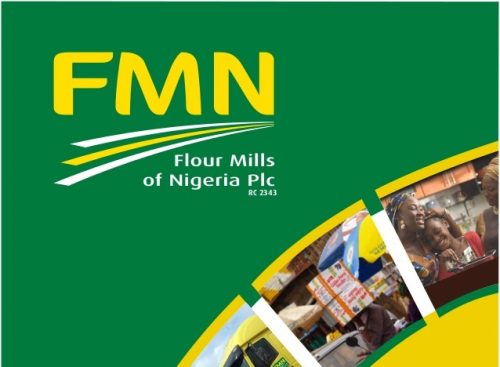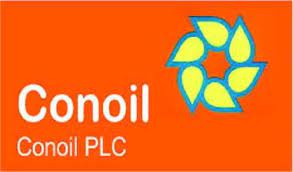Flour Mills of Nigeria Plc – On Course for a Solid Year?

.
In our view, Flour Mills of Nigeria Plc (FMN) looks set to record strong traction in operating performance in the current financial year. The company has already surprised market watchers with a 4.3ppts YoY increase in gross margin to 16.5%1 and a c.3.0x surge in operating cash flow to N16.7 billion in the peak of COVID-19 restrictions (April to June or Q1’20/21). While panic buying/stockpiling (one-off support for top-line growth in Q1’20/21, by our assessment) has stopped, lingering border closures and gravitation to value brands are likely to remain supportive for the rest of the year (revenue: FY’20/21E: +5.5% YoY N605 billion; previous forecast: N524.8 billion).
FMN is likely to report its first double-digit ROAE in 3 years in FY’20/21
We forecast return on average equities (ROAE) at 11.2% for FY’20/21 vs (7.4% in FY’19/20), aided by a projected surge in PAT (+57.6% YoY) and stable asset turnover of 1.3x (in line with three-year mean). In our view, the key pillars of PAT growth for FY’20/21 are likely to include:
- Increased market share due to cross country trade restrictions:
Within the food segment, extended border closures have had a positive impact on pasta (Q1’20/21 volume: +15.0% YoY) due to reduced competition from imported alternatives (e.g. rice). The trade restriction also boosted domestic production of poultry, which cascaded to strong support for the animal feeds business (Q1’20/21 revenue: +29.0% YoY). In the coming quarters, the recent exclusion of importers of food & fertilizers from accessing FX at official windows is likely to increase the impact of the “regulatory bounce” on FMN’s feeds and fertilizers businesses.
- Innovative product launches and a focus on value SKUs across brands:
Between FY’19/20 and Q1’20/21, FMN introduced value SKUs of brands such as Golden Vita, Golden Penny Noodles, Auntie Pasta, Auntie B Spaghetti Slim, and Semovita to ensure affordability and drive value within the B2C segment (Q1’20/21 revenue: +31.0% YoY) of its food business. In our view, these adjustments are in sync with the reality of greater consumer price sensitivity and weaker real income levels
Management noted that a few stocks were bought at pre-devaluation rates in Q1’20/21, but this was offset by the revaluation of payables below gross margin line.
- The reversal of sugar duty in July 2020 could support margins:
The reduction of sugar duty to 5.0% from 10.0% is expected to support margins in the Sugar business in FY’20/21. In addition, investments in mechanized harvesting and sugar cane haulage, as well as plans to expand the cultivated area to 3,500 hectares (from 2,800 hectares currently) in Sunti, suggest that the expected sugar margin resurgence could extend beyond the current financial year.
- The lower interest rate on BOI & CBN loans and dovish monetary policy:
As part of its COVID-19 response initiatives, both the Central Bank of Nigeria (CBN) and the Bank of Industry (BOI) reduced the interest rate on all facilities extended to FMN with effect March and April 2020, respectively. Specifically, the CBN reduced interest rate on its N42.4 billion facility to FMN by 4ppts to 5.0% for one year, with the BOI also cutting rates on N10.8 billion outstanding loan to 5.0% (vs 7.0% previously) for a similar period. According to management, these subsidized loans constituted c.40.0% of the group’s total borrowings as of June 2020. Thus, even though FMN has disclosed plans to tap into its N70 billion bond program before year-end, the passthrough to interest expense pressure is likely to be slightly offset by the forbearances from CBN and BOI, broad yield moderation, and repayments. All in, we expect interest expense to be flat YoY at c.N20.0 billion in the current financial year.
After allocating for planned CAPEX (c.N16.0 billion) and working capital needs, FMN is likely to report a free cash flow of N39.8 billion in FY’20/21 (compared to c.N45.2 billion in FY’19/20) in our view. Our free cash flow projection implies that the company should comfortably pay our FY’20/21 projected dividend of N1.60 (cumulative of N6.6 billion) and effect required repayment (c.N20.1 billion forecasted) on existing loans in the near-term.
The risks to our projections include:
- Further currency depreciation: By our estimate, FMN imports c.62.5% of its raw materials for production. This huge FX exposure mostly explains the N9.4 billion FX loss in Q1’20/21 (alone) that trailed the naira depreciation across FX windows2 in March. Additional naira weakness and FX illiquidity are likely to cascade to lower than projected net income.
- Re-opening of the borders: While we have factored in the impact of border closures for FY’20/21, an earlier than expected re-opening of the land borders could renew imported competition and lead to a fall in market share for FMN. In our view, the passthrough from restricted regional food trade flows on inflation is likely to provoke some re-assessments of the ongoing border enforcements post COVID.
- Flood disruptions at Sunti: On 25 September 2020, FMN informed the stock exchange that excessive flooding disrupted operations and expansion project (to 4,000 hectares of cultivated land by mid-2021) timeline at its sugar estate in Sunti. According to the report, management would only be able to assess the actual state of damage to sugar cane crops at Sunti when the floodwater subsides. We, however, cautiously taper our growth expectations for the sugar business and highlight that a graver than expected damage is a clear risk to margin from the segment.
Valuation
All considered, our model adjustments translate to an increase in 12-month TP to N29.55 (vs N21.34 previously). Our TP is at a 36.4% premium to our ref price of N21.65 and implies an exit PE of 6.8x. FMN is trading at estimated FY’20/21 EV/EBITDA and PE ratios of 2.4x and 4.9x, respectively, (compared to 5.0x and 7.6x apiece for select peers) on projected ROAE of 11.2% (vs five year mean of 9.6%). We have a BUY recommendation on the stock.
BY PROSHARE





